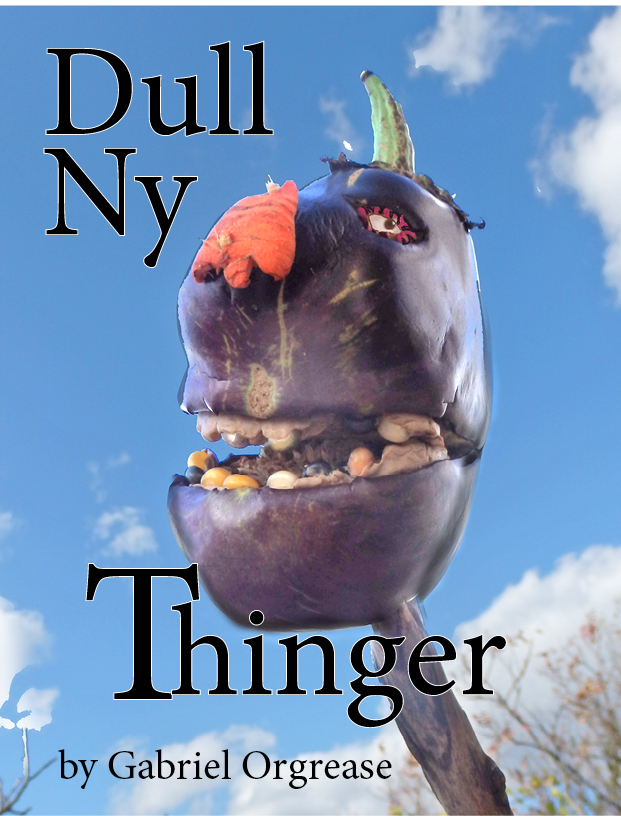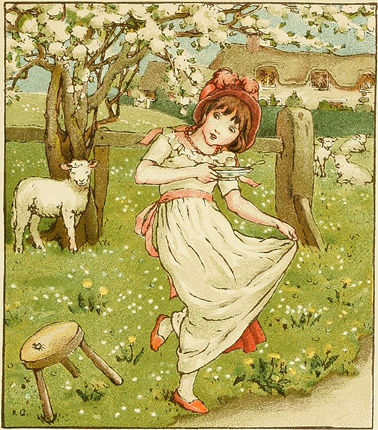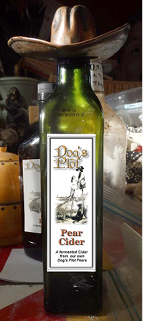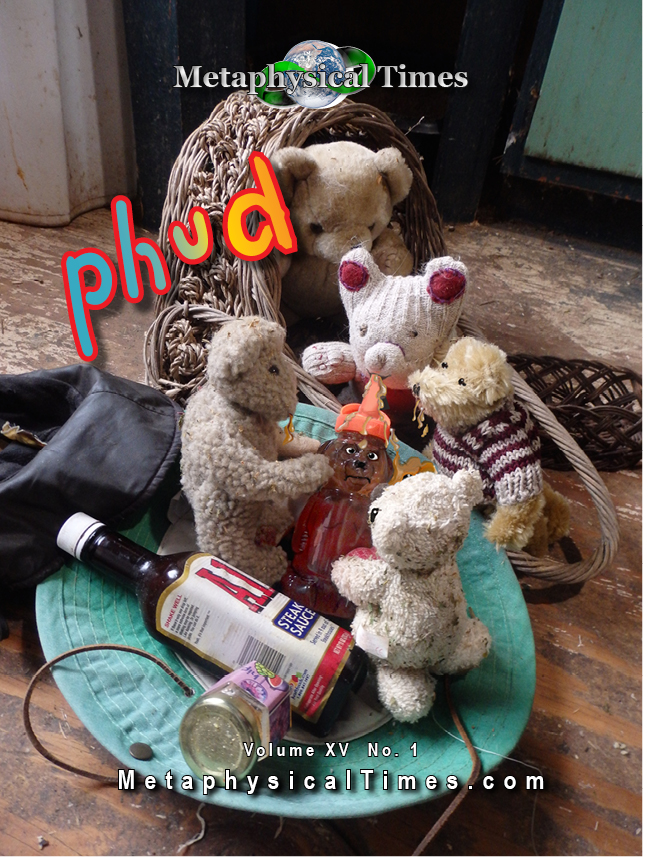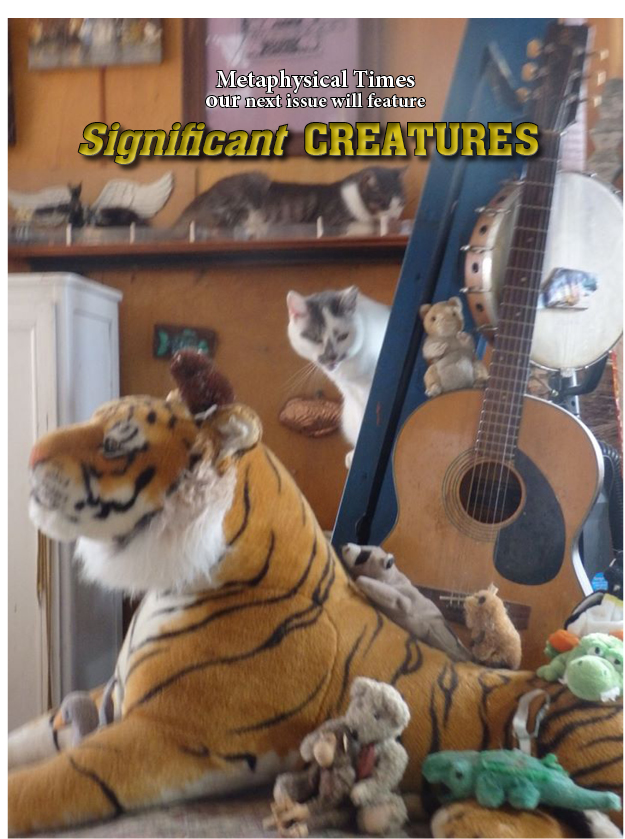PRELUDE:
When I was raised up I had no clue what an eggplant was. We never ate them. We never talked about them. It was in my twenties when I first came across a recipe for eggplant. It was a Zen macrobiotic cookbook and the recipe said to carve out the inside of an eggplant, pack it full of rock salt tight and firm, and then bury it in the ground. The recipe abruptly stopped at that point. The remainder of the page was blank. There were no directions to subsequently take the eggplant out of the ground. No indication as to anyone who may want to eat the eggplant. Nor any culinary comment as to how an eggplant takes on the flavor of the earth. This recipe forever since made me excruciatingly curious about eggplant. But I am also curious about textual use of dialect. Dialect is nowadays out of fashion and considered unmodern for many cultural reasons. Mostly reasons to do with the ear of the reader not being accustomed to the utterances of the mouth that the author imagines. Readers have become accustomed to not stress their brain cells when they read. Dialect tends to highlight the aura of the language and obfuscate the intent of the sentence to communicate. Like a thumb covered with thumbtacks. It is like too many flowery adjectives, or stuffing one’s nose, mouth, ears and arse with crushed garlic. It can be overwhelming, or fun, depending on proclivities. Worse yet, dialect distorted through the vocalization of a ventriloquist missing teeth and can’t hear so well in a conversation, halfway into their own conversation, a bit daft with age, and sexual exhaustion. So, the post-modern context is to present a story in dialect that skips over the burlesque way off into farce. Dull Ny Thinger should read like one of those internet challenges where only the top one percent of intelligent readers can read the text upside down and in a bastardized Anglo Saxon script. Good luck!
Dull Ny Thinger
“Hey, sonny doy, dull ny thinger.”
“Granpa, no.”
“I’m not yer Granda ya little tord. Now dull ny thinger.”
Aubergine Bawcutt, the talking eggplant, is the infamous Catskill ventriloquist Lorne Surlingham’s most famous dummy. Which is not saying a whole lot for dummies or back alley ventriloquists. A fat purple eggplant poked onto the top end of a broomstick, fastened with brass thumbtacks -- white eyes of radish slices with red peel rings, a petite carrot nose and a thin white-green slice for a mouth. The Chef’s Dummy they used to call her in the good old days on the underground circuit. A sort of Ubu Roi take-off in the vegetable and janitorial kingdom that never translated well to television but was a backstage hit at a thousand and twenty-three catered birthday parties.
“Oh man, grandpa, do you really have to do that? It isn’t funny any more.”
“Dunny in Catskills, dunny in Dooklyn.”
“Yeah, well, when I was seven it was funny, Grandpa. Now it is not so funny.”
“Get id it kid. I’m not yer Granda. Now, dull ny thinger ahore I sdit at you.”
“When are you going to open your presents?”
“Huenor ne kid. It’s the dunny’s dirthday. Dull ny thinger. Hurry.”
“Ok. Ok, Aubergine. Let me pull your finger.”
“Hooytunndhadlidderoodhuddlaaa.”
“You can’t pronounce your Ps anymore?”
“Tell it to the dunny’s dutt kiddo.”
“Yes, but you are missing a lot of consonants.”
“I denounce ny Ds just dine ya studid little tord snart az,” says Lorne without moving his old gray lips very much at all.
“So look, Grandpa, I have to do this oral history project for my class.”
“Ut ya anna dother ne doyer oral dentistee?”
“What?”
“Ya eder see an eggdlant id teeth ahore?”
“What are you talking about?”
“I don’t do dentists any ore. Too corny. Dey all out too easy all on the loor. Get sted on id the doots.”
“I don’t understand half what you are saying, Aubergine.”
“Da corn halls outa ny outh onto da cardet an get stedded on dy deedle alkin in an out aud the dentist auddice.”
“You mean corn teeth fall out of your mouth?”
“Yah.”
“Why are we talking about dentists?”
“Ya sed ya ant an oral dentistee.”
“History, Grandpa, history. An oral history, not oral dentistry.”
“Oh. I think tha ole nan needs a new dattery in his hearin’ aid,” says Aubergine.
‘It isn’t so bad, Aubergine. I’m more concerned about his lips.”
“I can still do the dund and ginde ya little tord.”
“Ah, you keep missing the B as well as the M. How do you expect anyone to understand what you are projecting?”
“He don’t natter. He dust the dunny. I use hin or da arns and thingers. Dats all.”
“I think it works better when you have your dentures in your mouth.”
“You nean you ould like to hear ne talk like this ith ny nouth dull ud rasdderries and celery stickin out ud ny nose?”
“Oh, well. Serious, Grandpa. I need to tape record our conversation and ask some questions about our family history.”
“It uz long long ago en I as just a little iddy diddy aedy eggdlant sittin in a sunny dield nindin I own dizziness en dis hayseed darner cun dy ith his donkey and dlucked nee outa da heild and thru ne into a dushel dasket….”
“Not that, not the history of a baby eggplant. I mean about the history of our family.”
“Oh,” Aubergine wipes her sweaty brow with an old man’s hand, “Ut ya anna kno?”
Well, for starters, how did you meet Grandma?”
“Coney Island, nineteen didy three. I et her en she auz the talkin’ cantaloude. Oy, auz she goot. One hell o’ a juicy elon she auz. I knu right then I gotta’ do sonthin’ dretty dast adout that.”
“Her dummies name was Melody Melons?”
“Yeah, she had elons all right. That auz a long tine ago. I dixed that en I narried her.”
“I don’t remember hearing about a hybrid ventriloquist act between eggplant and a cantaloupe?”
“No, no, the dunny here id the hair narried her and the talkin’ nelon retired.”
“And you went to work for the Transit Authority?”
“The dunny here urked or the dus condany. I ent onto the Roscoe Dinner in the Catskills.”
“And that was the high point of Aubergine’s career.”
“No, no, the high doint au ny career auz at Ite Nountain in New Hanshire.”
“Your honeymoon?”
“The dunnies honeynoon. Yeah.”
“And that is where Uncle Paul was conceived?”
“Yeah, the eledation and thin air naked the nelons hot.”
“And then there was, let’s see… Aunt Mary, Uncle Philip, Uncle Joe… Aunt Phyllis, Aunt Rosemary, Aunt Claris, and then my dad… Uncle Moe, Uncle Charles, Uncle Ernie, uh, Aunt Shirley, Aunt Mollie, have I got them all… oh yeah, Uncle Tom?”
“It auz a lotta urk, I’ll tell ya. It auz a lotta urk.”
“I don’t think half as much as what Grandma had to put up with.”
“Udoo ya nean dy that?”
“You realize you kept her pregnant solid for like eleven years of her adult life?”
“The dunny hadda do sunthin. Nelody Nelons auz just too good an act.”
“So, let me get this right. You married Grandma Dolores because she had a better ventriloquist act with her talking cantaloupe, Melody Melons, and you were worried she would make your eggplant act look rotten?”
“There auz extenuating circunstances, and a dew side denedits, but yeah, it was sort ud like that.”
“You, I mean, Grandpa was not called up for Korea?”
“The dunny had a slight dedect and they oodnot take hin into the arned dorces.”
“Grandpa had a medical deferral?”
“Yeah.”
“I didn’t know that. What was it for?”
“The dunny had a dad stutter and they thought he auz stuwdid cause he ket talkin to hizeld.”
“Oh. I didn’t know you, I mean, Grandpa had a stutter.”
“He don’t”
“No?”
“The dunny had to do sonthin. His act auz not the dest around and the condetition was tough dack then.”
“The recruitin sargeant caught ny act in Canarsie on night and a rune-or got started adout talkin ridles an dig guns an the rest auz history… and daydies, a lot of cryin daydies and changin diaders so the dunny ent on the road id ny act.”
“Is that when she went mute?”
“You nean yer Grandna Dolores?”
“Yes.”
“No.”
“When did she go mute?”
“Ater your Uncle Tom auz dorn in sixty-six.”
“Do you know what caused it? Was it a medical condition?”
“It auz sonthin the dunny said on the day au his dirthday that year.“
“She went mute because of something you… I mean, Grandpa said?”
“I don’t think she ent nute.”
“What do you mean?”
“I think she just decided to stod talkin.”
“For thirty-five years, to the day, she has not said anything on purpose?”
“Yeah.”
“I find this very difficult to believe.”
“Hae you aer heard her say a thin?
“No. I guess she finally stopped talking something like ten years before I was born.”
“Her act auz aldays deter. I think she just decided to get dack at the dunny as a nine.”
“Does it bother you, I mean, is it a problem she does not talk?”
“It don’t datter, it says on the cost od datterys or da hearin aid.”
Kathy. Gabriel and Sprout
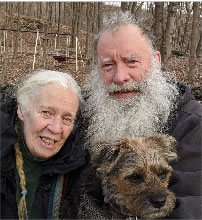
Writing by Gabreal Orgrease and by
other authors previously published in the
Metaphysical Times can be found in
the Stories, Essays and Poems at:
MetaphysicalTimes.com
(Visit Gabreal Orgrease's Article Archive)
